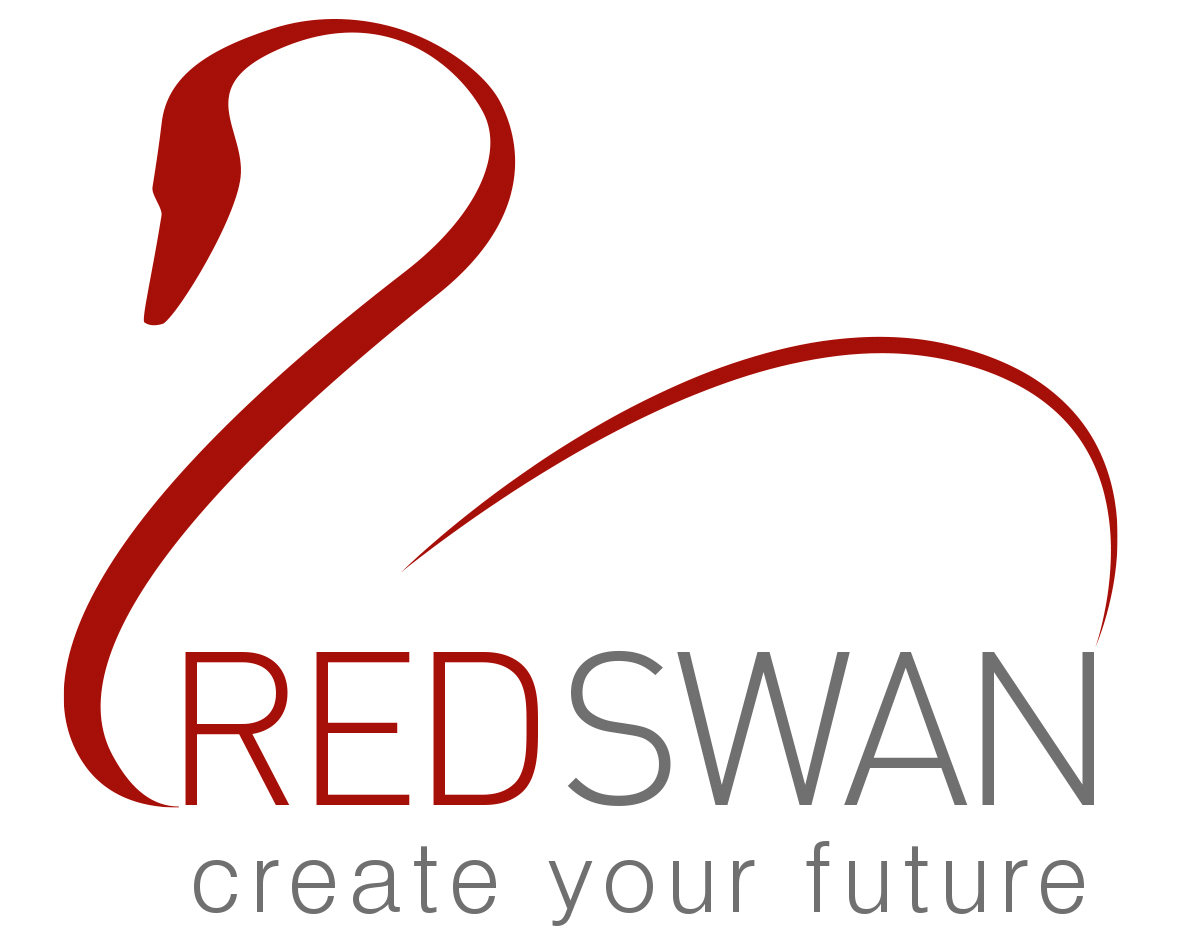Red Swan is a consultancy specialised in scenario, transformation, innovation and strategy processes combined with professional communication, branding, and storytelling founded by myself and Johannes Eysin in January 2015 in Vienna.
We focus on developing innovative ideas and business models, technology for people and empowering individuals, startups, established companies and organizations to create something new and different. Red Swan accompanies clients from the development of new ideas through the search for cooperation partners up to the market entry, commercialization, and new business development.
In all of our processes, we always dive deep into topics, motivations and even the subconscious mind – the things we don’t know that we don’t know. If you like, join us on this journey.

How did you come up with the idea for the company?
The company name “Red Swan” was inspired by Nassim Taleb’s famous strategy book “The Black Swan”. Black Swans are game changers. At Red Swan, we want to change the game, too. And the red stands for the passion and creative energy we put into that change. That’s why we call ourselves creative strategists.
We love to help our clients become wildly successful by diving deep into their subconscious mind. The process to do so: future scenario thinking.
It’s our passion to bring the fascination and advantages of future scenario thinking to the people who will profit from it. I had the great opportunity to learn the scenario method from one of the best: former chief strategist with Royal Dutch Shell, Karl Rose. During the past 11 years, we conducted scenario projects for a variety of ministries, companies and business associations.
More from Interviews
- A Chat with Kebbie Sebastian, CEO and Founder of Merge
- Meet Dr Agnès Leroy, GPU Director at Cryptography Tool: Zama
- Meet Roman Eloshvili, Founder of ComplyControl
- Inside Mobile Payments with Bojoko’s Ville Saari
- Meet Steve Haskew, Group Director of Sustainability and Growth At Circular Computing
- A Chat with Hakob Astabatsyan, CEO and Co-Founder of Synthflow AI
- Meet Ernesto Suarez, CEO at Travel Insurance Provider: Gigasure
- Under Pressure and On the Clock: Gurhan Kiziloz’s Nexus International to Hit $1.45B Revenue in 2025
How has the company evolved during the pandemic?
When the corona crisis started, my phone didn’t stop ringing. Many new clients called me to say, “Now we should think about the future and create future scenarios!” We have a process for that: Scenario Planning (or Scenario Thinking, as I prefer to call it). It was first applied by the US Air Force for strategic planning in the 1940s. Then, in the 1960s and 70s, a team at Royal Dutch Shell adopted it for business purposes with great success.
Shell had already been prepared for an oil-shock scenario when others didn’t even dare to think about it. As a result, Shell was able to skyrocket from a rather weak market position to the top 2 of the world’s leading oil companies.
How was that possible? Shell had imagined various future scenarios, not only the one they thought might most likely evolve. Thus, they were able to prepare for the best, the worst, and all the uncertainties that lay in-between.
A crisis like the current one throws us into an ocean of uncertainty. That can make us feel utterly powerless and out of control. I cannot promise you control (because the desire to control comes from a place of fear), but I can promise you empowerment. Not power over other people, but coming into your own power by facing reality and taking inspired action steps from there.
In the Scenario Process, we face reality by diving deep into internal and external driving forces and learning about our true priorities and motivations. And that’s how we can turn uncertainty into a competitive advantage. But is it only for big organizations like the US Air Force or Shell? Not at all.
The process can be applied to all industries and company sizes. This goes from small startups to SMEs to large corporations, public organizations and even states, and conglomerates of states.
Who should use it?
Everyone who has to make a decision in the face of uncertainty. That can be something as big as the investment in a new power plant or the question of how to select your business partner and pick your employees. The decision can be as individual as choosing a school, major, job, business partner, or spouse, too.
Everyone who wants to shape the future. Abraham Lincoln once said, “The best way to predict the future is to create it.” Imagining the future and acting on your insights empowers you to create the future you want.
Everyone who wants to live in reality, bring subconscious driving forces and motivations to the surface, and take inspired action steps accordingly.
What can we hope to see from Red Swan in the future?
More hot takes on humanity’s future, especially on the intersection between technology, business, and the human factor.



